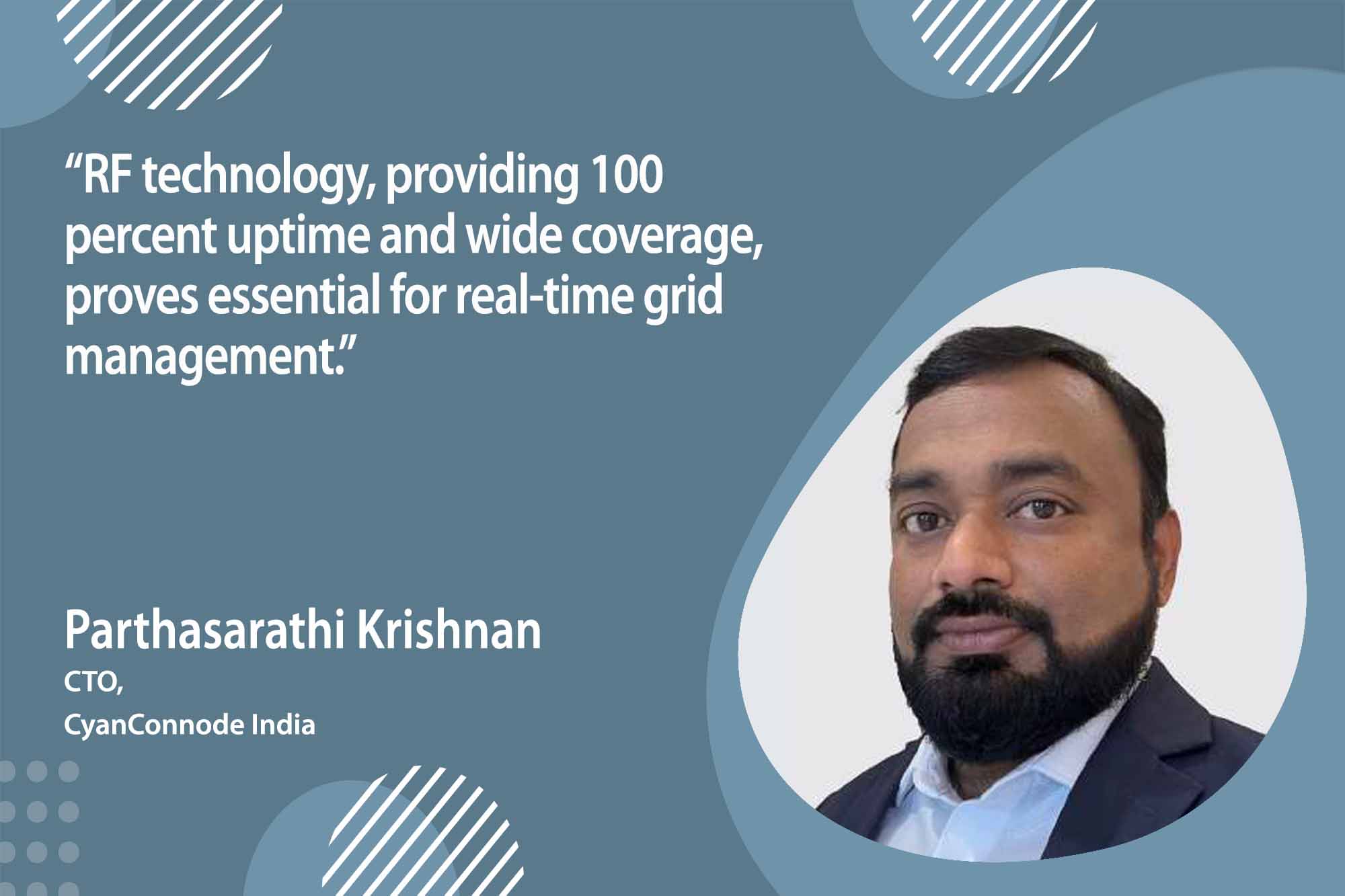CyanConnode to launch Unified Head-end System for enhanced flexibility
By EPR Magazine Editorial February 26, 2024 7:58 pm IST
By EPR Magazine Editorial February 26, 2024 7:58 pm IST

RF technology, providing 100 percent uptime and wide coverage, proves essential for real-time grid management.
The digital transformation in the Indian utilities sector, driven by smart meter adoption and government schemes like RDSS, aims to curb AT&C losses, modernise infrastructure, and enhance energy efficiency. Parthasarathi opines about the industry trends with the EPR Magazine.
Key factors driving digital transformation
The digital transition in India’s utilities sector is driven by the widespread adoption of smart meters, underpinned by government initiatives such as the RDSS and revised SBD. Aimed at installing smart meters in 250 million households, these policies seek to improve billing efficiency and potentially save ₹10 trillion over the next decade. Smart meters provide real-time energy consumption data, support demand response management, enable renewable energy integration, offer remote management capabilities, and lay the groundwork for smart grids. This revolutionises energy management towards greater sustainability and efficiency, marking a critical step in modernising the utility infrastructure within a concise strategic framework.
Technology curbing AT&C losses
Smart metering technology is crucial for reducing Aggregate Technical & Commercial (AT&C) losses in India, addressing issues like unrecorded energy consumption, theft, and inaccuracies in billing. By offering real-time data monitoring, smart meters enable utilities to detect discrepancies quickly, leading to more accurate billing and lower revenue leakage. They support enhanced grid management by optimising operations and reducing technical losses, while dynamic pricing encourages consumers to use energy during off-peak hours, alleviating grid stress. Additionally, smart meters aid in integrating renewable energy sources and improving consumer engagement by providing insights into energy usage. Advanced security features ensure data integrity, contributing to a more sustainable, efficient, and secure energy future by minimising AT&C losses.
Facing the challenges
Despite progress, the smart meter industry faces consumer awareness and communication infrastructure challenges. Effective consumer education is needed to overcome resistance and highlight smart meters’ benefits for energy conservation and billing accuracy. Additionally, establishing a reliable communication network is crucial, especially in rural and semi-urban areas. RF technology, providing ~100% uptime and wide coverage, proves essential for real-time grid management. CyanConnode’s achievements with RF technology, achieving a significant range in challenging terrains, demonstrate the capability to address these challenges, ensuring widespread smart meter adoption across diverse landscapes.Government initiatives
Government initiatives like the Revamped Distribution Sector Scheme (RDSS) are instrumental in boosting the smart meter industry, aiming to reduce Aggregate Technical & Commercial (AT&C) losses and the gap between the cost of supply and revenue. RDSS facilitates smart meter deployment by incentivising Discoms to meet loss reduction targets, leading to a surge in smart meter tenders and encouraging participation from Advanced Metering Infrastructure Service Providers (AMISPs).
This has significantly contributed to modernising the power sector, with tangible outcomes such as a 5 percent reduction in AT&C losses and improved billing efficiency, exemplified by CyanConnode’s project in Indore. Focus on rapid deployment and long-term operational benefits of the scheme underpins a strategic move towards a more efficient, sustainable energy future, aligning to equip 250 million households with smart meters.
Innovative strategy to compete in the evolving market
CyanConnode is a leader in the smart metering market, soon launching the Unified Head-end System for unmatched flexibility and vendor independence, supporting various connectivity technologies, including our Standards based RF, cellular, Nb-IOT, and PLC. CyanConnode has introduced long-range RF technology, capable of communication over distances of up to 10 KM on a single link with a clear line of sight, ideal for challenging terrains, a capability proven in field tests in Shimla with nearly 9.5 KM reach without issues, highlighting its potential for remote areas. These innovations underline the company’s commitment to providing flexible, cost-efficient, and reliable solutions, positioning CyanConnode at the forefront of the industry. CyanConnode technologies are tailored to meet the energy sector’s present and future demands, enhancing utility operations in a digital age.
Spokesperson: Parthasarathi Krishnan, CTO- CyanConnode India
We use cookies to personalize your experience. By continuing to visit this website you agree to our Terms & Conditions, Privacy Policy and Cookie Policy.